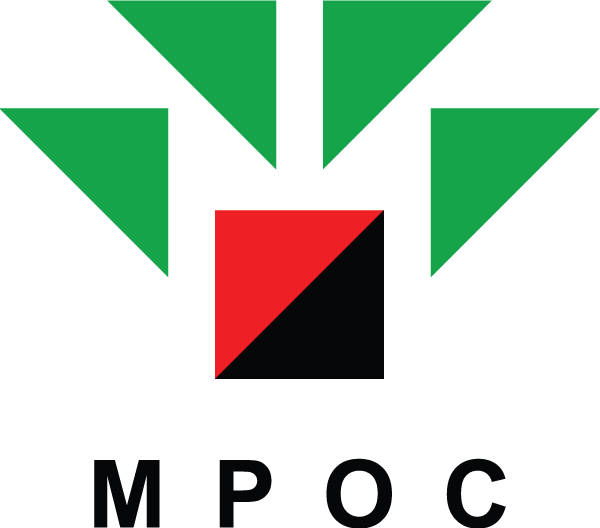Archive
2022
28 Mar - 01 Apr 2022
ASSESSING 2022: MANAGING OPPORTUNITIES AND RISKS
14 - 18 Nov 2022
MITIGATING THE NEXT WAVE OF MARKET UNCERTAINTIES
2021
05 - 11 Apr 2021
Section 1: Price Direction
•
05 - 11 Apr 2021
Section 2 : Special Focus on the US
18 - 24 Oct 2021
Section 1: Oils & Fats Supply, Demand and Outlook
18 - 24 Oct 2021
Section 2: Opportunities for Palm Oil in Asian Market
2020
24 Feb - 01 Mar 2020
Section 1 : CPO Price Trend
24 Feb - 01 Mar 2020
Section 2: Global Palm Oil Market Opportunities
22 - 28 Jun 2020
POINTERS ON THE PRICE TRENDS
2019
18 - 24 Feb 2019
Section 1: CPO Price Trend
25 - 24 Feb 2019
Special Focus - India
19 - 25 Aug 2019
Section 1 : CPO Price Trend
19 - 25 Aug 2019
Section 2: Special Focus
2018
29 Jan - 04 Feb 2018
Section 1: CPO Price Trend
29 Jan - 04 Feb 2018
Section 2 : Global Palm Oil Market Focus
06 - 12 Aug 2018
Section 1: CPO Price Trend
06 - 12 Aug 2018
Section 2: Global Palm Oil Market Focus
2017
20 - 26 Feb 2017
Section 1: Price Directions
20 - 26 Feb 2017
Section 2: Market Challenges and Opportunities
•
Recent Trends in Consumption of Edible Fats and Oils in Korea
21 - 27 Aug 2017
Section 1: Palm Oil Price Fundamentals
21 - 27 Aug 2017
Section 2: Regional Focus : CIS Countries
2016
22 - 29 Feb 2016
2016 Market Direction - Twists and Turns of Palm Oil Prices
22 - 28 Aug 2016
Section 1 : Palm Oil Price Fundamentals
22 - 28 Aug 2016
Section 2 : Trade Issues and Market Prospects
2015
23 Feb - 01 Mar 2015
Opportunities, Challenges And Trend In 2015 CPO Price
17 - 23 Aug 2015
Second Half 2015 - Anticipating Market Price Direction
17 - 23 Aug 2015
Special Focus: Indian Sub-Continent
2014
17 - 24 Feb 2014
Anticipating 2014 Palm Oil Price Direction
25 - 31 Aug 2014
2nd Half 2014: Market Challenges, Predictions And Directions
2013
18 - 27 Feb 2013
Mapping The Palm Oil Price - 2013 Market Perspective
22 - 29 Jul 2013
Prospects For Second Half Of 2013 - Managing Price Fluctuations
2012
13 - 20 Feb 2012
2012 Price Direction, Issues & Challenges
•
06 - 17 Aug 2012
Palm Oil : Challenges, Opportunities And Latest Market Directions
2011
07 - 17 Feb 2011
Challenges, Opportunities And Price Direction
08 - 16 Aug 2011
Challenges, Opportunities And Latest Price Trend
2010
02 - 08 Aug 2010
2010 Year End Prospects - What Lies Ahead?
Login
Error
Reset Password

Error
Register

Error

POINTERS
LOGIN /
REGISTER




ORGANIZED BY:

Section 2: Market Challenges and Opportunities:
Recent Trends in Consumption of Edible Fats and Oils in Korea

Dr. Suk Hoo Yoon
Education:
B.S. 1977 Division of Applied Biological Chemistry, Seoul National University
M.S. 1980 Department of Biological Science and Engineering,
Korea Advanced Institute of Science and Technology
Ph.D. 1983 Department of Biological Science and Engineering Korea Advanced Institute of Science and Technology
Professional Employment:
1983 - 1988 Senior Research Scientist, Korea Institute of Science and Technology
1984 - 1985 Post-Doctoral Fellow, Department of Food Science and Technology, The Ohio State University, Columbus, Ohio, U.S.A.
1988 - 2013 Senior Research Scientist, Principal Research Scientist
Head, Director, Vice President, President (2011 - 2013)
Korea Food Research Institute
1997 - 1999 Visiting Professor, Department of Chemical and Biochemical Engineering,
The University of California, Irvine, California, U.S.A.
2004 - 2013 Professor, Director, Food Biotechnology Division,
University of Science and Technology, Korea
2014 – Present Professor, Department of Food Science and Biotechnology,
Woosuk University, Korea
Awards and Honors:
Academic Advancement Award, Korean Society of Food Science and Technology, 1990
Outstanding Achievement Award, Ministry of Agriculture and Forestry, 2002
Fellow, International Society of Biocatalysis and Agricultural Biotechnology, 2011
Order of Science and Technology Merit, President of Korea, 2012
Fellow, Institute of Food Technologists, U.S.A, 2014
Fellow, American Oil Chemists’ Society, U.S.A., 2015
Outstanding Life-Time Achievement Award, KoSFoST, 2016
Editorships:
Editor-in-Chief, Food Science and Biotechnology, KoSFoST, Korea (2010 - 2011)
Editor, New Biotechnology, Elsevier, U.S.A (2008 - 2010)
Editorial Board, Journal of Food Science, IFT, U.S.A. (2002 - 2004)
Editor, Biocatalysis and Agricultural Biotechnology, Elsevier, U.S.A. (2011- present)
Professional Memberships:
Korean Society of Food Science and Technology – Vice President (2009), President (2012)
International Society of Biocatalysis and Biotechnology – Director (2009 - present)
American Oil Chemists' Society (U.S.A.) – Chair, Biotechnology Division (2013)
Chair, Asian Section (2012-2015), Vice Chair (present)
Research Works:
Major Fields: Food Chemistry and Biotechnology (200 papers, 27 book chapters, 220 abstracts)
Research Interests: chemistry of oxidation and flavor stability of lipid foods, processing of fats and oils, instrumental analyses of food materials, antioxidants, enzymatic and microbial processing of foods, single cell oil fermentation
VIEW PROFILE
Based upon the changes of social and economic situations in Korea, the total consumption and variety of fats and oils used for food purposes have been remarkably changed during last decades. The proportion of energy intake from lipids was 28.8% of total energy intake in 2014, and that from visible lipids was 58.7%. The per capita supply of fats and oils was 56.4g/day, of which 98.5% were vegetable origins. The total supply amount of fats and oils for foods was 1,037,000M/T. The import amount of fats and oils comprised 98.5% of total fats and oils supply. The amount of palm oil supply was the highest as 429,000M/T, followed by those of soybean oil, canola oil, coconut oil, and corn oil in decreasing order. The fish body oil and beef tallow were the major animal fats and oils sources.
The variety of fats and oils produced in Korea, even in small amounts, included perilla oil, sesame oil, and rapeseed oil. Palm oil was mainly used for the manufacturing of instant noodles (ca 55% of total consumption) and snacks, whereas soybean oil was used mainly for salad/cooking purposes. The total consumption amount of fats and oils in Korea looks near to be mostly stabilized, however, it shows a slight and continuous increase in recent years. This is considered due to the development of new product items, especially instant noodle products. It is also recognized that the consumers become more cautious about health and well-being diets.
The manufacturers of lipid foods have become, therefore, interested in the usage of novel fats and oils for novel food production considering health concerns.
The variety of fats and oils produced in Korea, even in small amounts, included perilla oil, sesame oil, and rapeseed oil. Palm oil was mainly used for the manufacturing of instant noodles (ca 55% of total consumption) and snacks, whereas soybean oil was used mainly for salad/cooking purposes. The total consumption amount of fats and oils in Korea looks near to be mostly stabilized, however, it shows a slight and continuous increase in recent years. This is considered due to the development of new product items, especially instant noodle products. It is also recognized that the consumers become more cautious about health and well-being diets.
The manufacturers of lipid foods have become, therefore, interested in the usage of novel fats and oils for novel food production considering health concerns.
REGISTER OR LOGIN TO VIEW FULL REPORT
REGISTER OR LOGIN TO VIEW PRESENTATION SLIDES
Questions & Answers
Please login to post comments.
Facebook SDK returned an error: